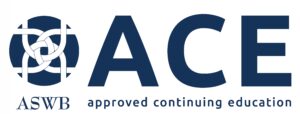Joint Accreditation: Two years of collaboration
In the two years since ASWB’s Approved Continuing Education program became an associate member of Joint Accreditation for Interprofessional Continuing Education, the collaboration has proven to be an important part of the services ASWB provides to members and licensees. While this avenue for providers to offer ASWB ACE credit may not be familiar to some administrators and staff, ACE staff are eager to share information with them. ASWB wants to make sure that member boards that accept ACE credit feel confident that ASWB authorizes certificates from jointly accredited providers that show ACE credit.
 Joint Accreditation was founded to encourage continuing education providers to multiply the benefits of their courses by helping to “establish the standards for education providers to deliver interprofessional continuing education planned by the health care team for the health care team (jointaccreditation.org).” Training may target those in the professions of psychology, pharmacy, nursing, optometry, physicians’ assistants, and medicine, as well as social work.
Joint Accreditation was founded to encourage continuing education providers to multiply the benefits of their courses by helping to “establish the standards for education providers to deliver interprofessional continuing education planned by the health care team for the health care team (jointaccreditation.org).” Training may target those in the professions of psychology, pharmacy, nursing, optometry, physicians’ assistants, and medicine, as well as social work.
Interprofessional continuing education
The collaboration benefits ASWB’s member boards because, as Lisa Casler Haun, continuing competence and continuing education services manager, says, “Our partnership with Joint Accreditation has increased the number of high-quality educational opportunities available to social workers, specifically the number of educational opportunities created by the health care team for the health care team.” She says that research shows an “increase in positive outcomes for patients when health care teams work together more cohesively and effectively,” results that are good for both licensees and clients.
ACE quality, ACE involvement
 All jointly accredited providers authorized to offer ACE credit must adhere to ACE credit standards. Providers must have social work planners involved in the creation or review of every course offered for social work credit. Casler Haun frequently connects with Joint Accreditation by, for example, attending Joint Accreditation meetings with associate members several times a year, speaking at or attending educational meetings of other member organizations, and presenting at the annual provider training sessions. As part of ASWB’s associate membership, ASWB staff may sit on the review board for providers seeking accreditation. “Joint Accreditation has high standards for providers and courses,” Casler Haun says.
All jointly accredited providers authorized to offer ACE credit must adhere to ACE credit standards. Providers must have social work planners involved in the creation or review of every course offered for social work credit. Casler Haun frequently connects with Joint Accreditation by, for example, attending Joint Accreditation meetings with associate members several times a year, speaking at or attending educational meetings of other member organizations, and presenting at the annual provider training sessions. As part of ASWB’s associate membership, ASWB staff may sit on the review board for providers seeking accreditation. “Joint Accreditation has high standards for providers and courses,” Casler Haun says.
We are very happy with our partnership with Joint Accreditation. We’ve seen an increase each year in providers requesting authorization to offer ACE credit.
Increasing interest in social work CE
“We are very happy with our partnership with Joint Accreditation,” Casler Haun says. “We’ve seen an increase each year in providers requesting authorization to offer ACE credit.” This year, 56 providers—about half of all Joint Accreditation providers—may offer ASWB ACE credit through their approval by that organization. That number represents an increase of seven over 2020. She says it makes sense that authorization to offer social work CE is frequently requested: “Social workers are crucial members of so many health care teams, both inpatient and outpatient.”
Accepting ASWB ACE credit from Joint Accreditation providers
- Providers authorized to offer ACE credit are listed on the ASWB webpage Joint Accreditation for social work CE. Contact Lisa Casler Haun if you are unsure of whether a provider is approved to offer ASWB ACE credit.
- Certificates offering social work credit should have a Joint Accreditation ASWB ACE statement. Some Joint Accreditation provider courses may not be authorized to offer ASWB ACE credit.
- Joint Accreditation providers do not have an ACE provider number. Instead, they have a Joint Accreditation provider number.
- Contact Lisa Casler Haun with questions about ASWB’s partnership with Joint Accreditation.

